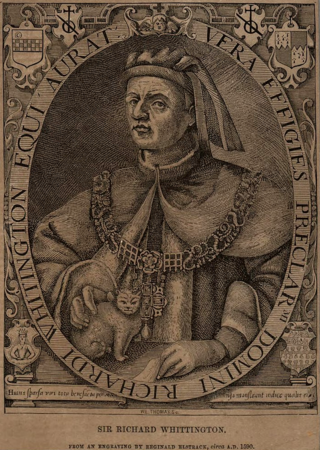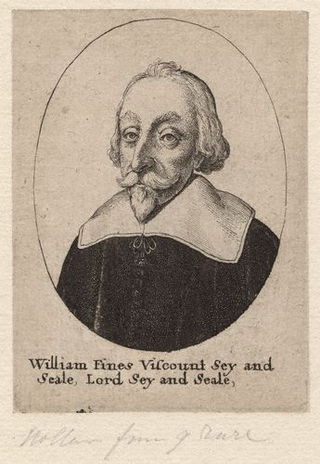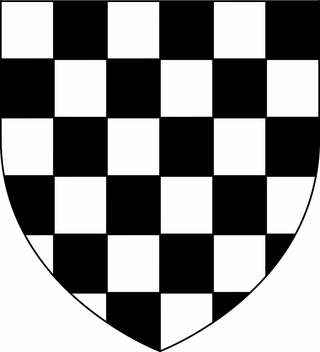Related Research Articles

Richard Whittington of the parish of St Michael Paternoster Royal, City of London, was an English merchant and a politician of the late medieval period. He is also the real-life inspiration for the English folk tale Dick Whittington and His Cat. He was four times Lord Mayor of London, a member of parliament and a Sheriff of London. In his lifetime he financed a number of public projects, such as drainage systems in poor areas of medieval London, and a hospital ward for unmarried mothers. He bequeathed his fortune to form the Charity of Sir Richard Whittington which, nearly 600 years later, continues to assist people in need.

Jack Cade's Rebellion was a popular revolt in 1450 against the government of England, which took place in the south-east of the country between the months of April and July. It stemmed from local grievances regarding the corruption, maladministration and abuse of power of the king's closest advisors and local officials, as well as recent military losses in France during the Hundred Years' War. Leading an army of men from south-eastern England, the rebellion's leader Jack Cade marched on London in order to force the government to reform the administration and remove from power the "traitors" deemed responsible for bad governance. Apart from the Cornish rebellion of 1497, it was the largest popular uprising to take place in England during the 15th century.

Baron Saye and Sele is a title in the Peerage of England held by the Twisleton-Wykeham-Fiennes family. The title dates to 1447 but it was recreated in 1603. Confusion over the details of the 15th-century title has led to conflicting order for titleholders; authorities such as Burke's Peerage and Debrett's Peerage do not agree on whether or not the 1447 creation is still extant.

William Fiennes, 1st Viscount Saye and Sele was an English nobleman and politician. He was a leading critic of Charles I's rule during the 1620s and 1630s. He was known also for his involvement in several companies for setting up overseas colonies.

James Fiennes, 1st Baron Saye and Sele was an English soldier and politician. He was born at Herstmonceux, Sussex, the second son of Sir William Fiennes and his wife Elizabeth Batisford.
Sir John Say was an English courtier, MP and Speaker of the House of Commons.
Viscount Saye and Sele was a title in the Peerage of England. It was created on 7 July 1624 for William Fiennes, 8th Baron Saye and Sele and became extinct on the death of Richard Fiennes 6th Viscount on 29 July 1781.

Chandos Leigh, 1st Baron Leigh was a British landowner and minor poet. He was Lord of the Manor of Hunningham.

John Beauchamp, 1st Baron Beauchamp of Powick, KG, was an English nobleman and administrator. He was the son and eventual heir of Sir William Beauchamp of Powick in Worcestershire, Constable of Gloucester Castle, by his wife, Katherine Usflete, daughter and heiress of Sir Gerard de Usflete, a Member of Parliament for Yorkshire in 1401.

Sir John Fogge was an English courtier, soldier and supporter of the Woodville family under Edward IV who became an opponent of Richard III.

James Fiennes, 2nd Viscount Saye and Sele was an English peer and MP at various times between 1625 and 1660, when he succeeded his father and entered the House of Lords.
Sir Peter Delmé was a notable British figure in commerce and banking in the early 18th century.
Sir Thomas Parr was an English landowner and elected Member of Parliament six times between 1435 and 1459. He was great-grandfather of Queen Catherine Parr, the sixth wife of King Henry VIII.

Sir William Humfreys, 1st Baronet, was a British ironmonger and politician who sat in the House of Commons from 1715 to 1722. He was Lord Mayor of London for 1714–15 and a Director of the Bank of England between 1719 and 1730.
Sir Robert Poynings, was the second son of Robert Poynings, 4th Baron Poynings (1382–1446). He joined the rebellion of Jack Cade in 1450, and was slain fighting on the Yorkist side at the Second Battle of St Albans in 1461.
Theophilus Clinton, 4th Earl of Lincoln, KB, styled Lord Clinton until 1619, was an opponent of Charles I during and preceding the English Civil War.
John Twisleton, of Horsmans Place, Dartford, Kent was created a baronet by the Lord Protector Oliver Cromwell. He was Sheriff of Kent.
Richard Fiennes, 7th and 1st Baron Saye and Sele was an English peer and diplomat.

Sir John St Barbe, 1st Baronet, of Ashington, Somerset and Broadlands, Hampshire, was Member of Parliament for Ilchester in 1681. He was created a baronet on 30 December 1662 at the age of 7.
Sir John Ward, of Hookfield, Clay Hill, Epsom, Surrey and St Laurence Pountney, London, was a British merchant, banker and politician who sat in the House of Commons between 1701 and 1726. He was an original Governor of the Bank of England and served as Lord Mayor of London in 1718.
References
- ↑ "CROMER, William (d.1434), of London". History of Parliament Online. Retrieved 1 November 2017.